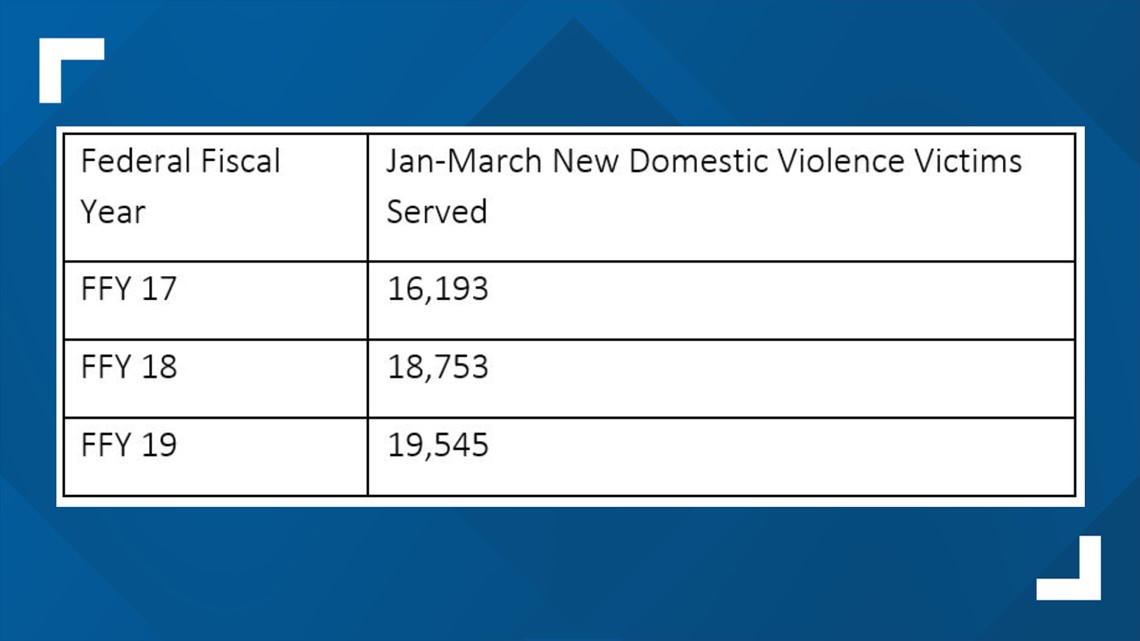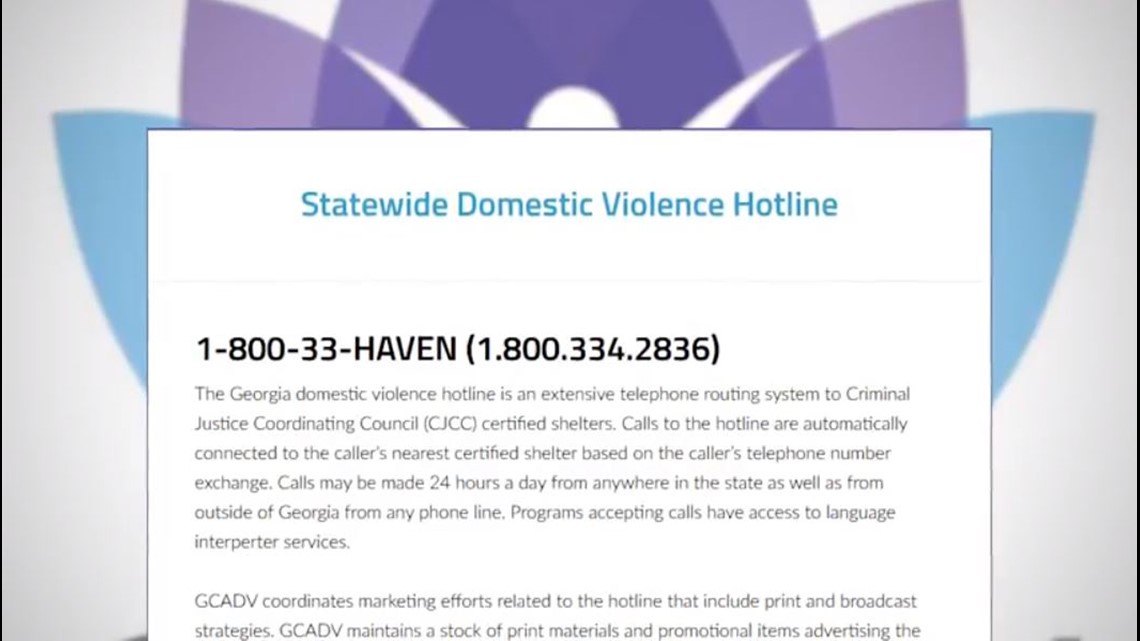ATLANTA — During a news conference on April 1, about the COVID-19 pandemic, Georgia’s Governor Brian Kemp said, in part, “We have been told by one Atlanta-area hospital that they are seeing a 15% increase in domestic violence cases in their facility.”
The percentage was a surprise to even some advocates who work to help domestic violence survivors.
“I was a little surprised but I’m not saying it’s not true obviously,” said Jan Christiansen, the executive director of the Georgia Coalition Against Domestic Violence.
Christiansen said her group is the umbrella agency for all domestic violence programs in the state of Georgia. Statewide, she said they expect Georgia’s domestic violence problem to get worse during the COVID-19 pandemic but did not expect numbers so soon.
“Only because I think that survivors are going to find it harder to reach out and get help,” Christiansen explained. “I also think that [victims] right now, in general, are afraid to go to hospitals because of the spread of the COVID-19. And so, I think it's so multilayered and so multifaceted that I don't think that we will know really the impact until we get to the other side of this [pandemic].”
Advocates against domestic violence understand the need for the shelter-in-place order, but said they are getting increasingly worried that the longer those measures are in place, the more danger it presents for family violence.
In emails to 11Alive, Governor Kemp's office would not release the source of the data the governor referenced during his news conference. His communications director wrote, "We said Atlanta-area hospital. We’re not going to get into additional specifics, so please use his direct quote."
11Alive reached out to area hospitals, law enforcement agencies and advocates to find out what they are seeing. Atlanta's Grady hospital, the largest hospital in the state of Georgia responded, "We do not keep stats on domestic violence cases."
WellStar said, "In light of the COVID-19 pandemic, we are not able to provide the information you are requesting at this time about domestic violence stats. This would require pulling vital resources off the current focus, which is caring for patients, team members, and communities we serve during this critical and challenging COVID-19 crisis.”
The Georgia Bureau of Investigation replied, “The GBI does not maintain those statistics.”
Even the state’s domestic violence hotline, according to Christiansen, hasn't finished calculating its March data yet. Regardless, Christiansen said the risk to domestic violence survivors is undeniable.
911 calls from around the metro-area just in the last few days also signal some families desperate for help: husbands fighting wives, daughters hitting their mothers, and in one call, a woman who called to report, “my fiancé just busted my mouth.”
“I think 15 percent could really be representative of a lot more that's going on out there. That survivors are not going to be safe in an ongoing basis when they are trying to navigate a stay-at-home order, when they were living with somebody who could potential be violent,” Christiansen added.
11Alive was able to get some data from the Atlanta Police Department on domestic violence cases. As of the end of March, APD said it had 212 domestic cases compared to 289 during the same period last year.
The Georgia Criminal Justice Coordinating Council which collects quarterly data said its 2020 calculations are not yet available. However, year-over-year their data shows domestic violence victims served in the state has increased each year since 2017.


The environment created by the COVID-19 pandemic might not be ideal but Christiansen wants victims to remember, even under a shelter-in-place order, help for domestic violence survivors is still only a call away.
“Even if somebody can't leave or isn't ready to leave or is afraid to leave... there is going to be an advocate on the other end of the phone when you called that number,” she said.
The Georgia domestic violence hotline number is 1-800-334-2836.


11Alive is focusing our news coverage on the facts and not the fear around the virus. We want to keep you informed about the latest developments while ensuring that we deliver confirmed, factual information.
We will track the most important coronavirus elements relating to Georgia on this page. Refresh often for new information.

